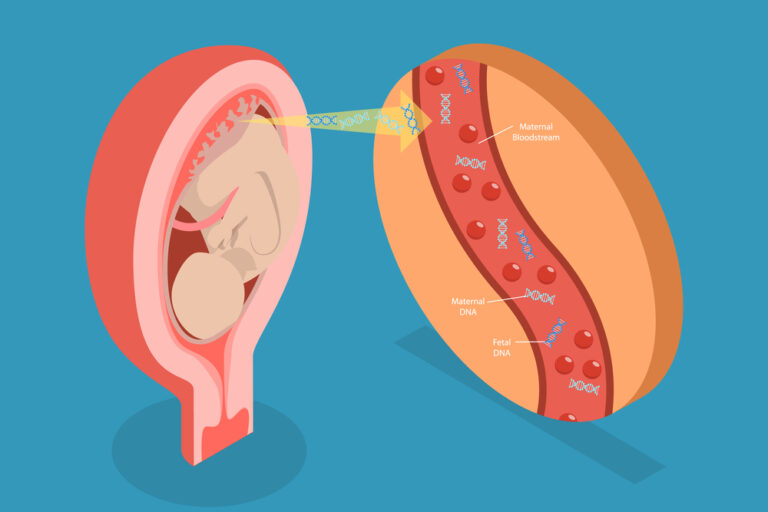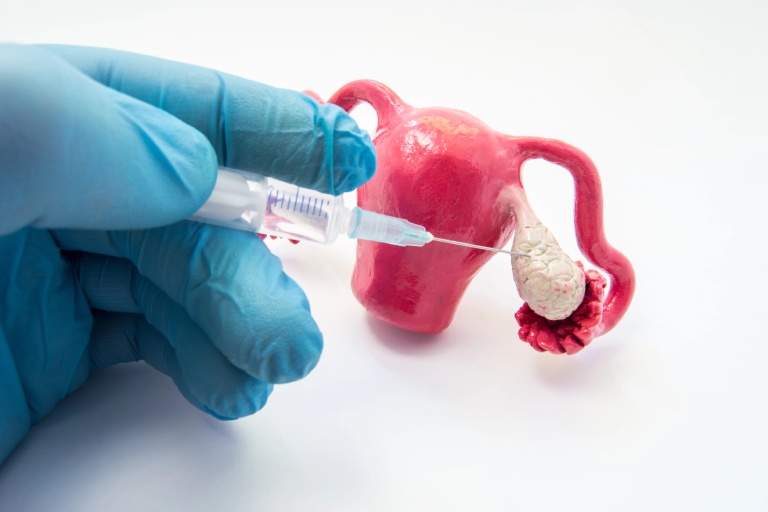
Surrogacy is an incredible journey that brings the hope of parenthood to many who might otherwise find it challenging. However, it is also a process surrounded by numerous questions and misconceptions, particularly regarding the biological connections between a surrogate and the baby she carries.
One of the most common questions asked is, “Does a surrogate share blood with the baby?” To answer this question, it’s essential to understand the different types of surrogacy and the biological processes involved during pregnancy: traditional or gestational.
In this blog post, we will explore the biological and physiological connections between a surrogate and the baby, providing a clear understanding of how surrogacy works.
Understanding these nuances helps clarify the roles and boundaries involved in surrogacy, offering a clearer picture of the biological and genetic relationships, or the lack thereof, between the surrogate and the baby she nurtures.
Understanding the Types of Surrogacy
Surrogacy is an arrangement where a woman carries a pregnancy for another person or couple, known as the intended parents. There are two primary types of surrogacy: traditional and gestational.
The differences between these two forms of surrogacy have significant implications for the biological connection between the surrogate and the baby.
Traditional Surrogacy: A Genetic Connection
In traditional surrogacy, the surrogate uses her own egg, which is fertilized by sperm from either the intended father or a sperm donor. Because the surrogate’s egg is used, she is the biological mother of the child, and they share a genetic and blood relationship.
This means that in traditional surrogacy, the surrogate and the baby are connected not only by the shared pregnancy but also by shared DNA.
During the pregnancy, the surrogate’s blood supplies oxygen and nutrients to the baby through the placenta. This blood connection means that the surrogate and the baby share certain biological aspects, such as blood type and genetic traits. However, the intended parents will ultimately be the legal parents of the child.
Gestational Surrogacy: A Physiological Connection Without Genetic Ties
Gestational surrogacy differs significantly from traditional surrogacy in that the surrogate does not use her own egg. Instead, an embryo is created through in vitro fertilization (IVF) using the egg and sperm of the intended parents or donors. This embryo is then implanted into the surrogate’s uterus, where it will grow until the baby is born.
The Role of the Placenta in Pregnancy
Regardless of the type of surrogacy, the placenta plays a crucial role in maintaining the pregnancy. The placenta is a complex organ that forms in the uterus during pregnancy and serves as the interface between the surrogate’s blood supply and the baby’s developing body.
Blood Sharing During Pregnancy
The placenta enables the transfer of oxygen, nutrients, and waste products between the surrogate and the baby. The placental barrier is composed of several layers of cells that separate the mother’s blood from the baby’s blood.
Although substances like oxygen, nutrients, and waste can pass through this barrier, blood cells cannot. This separation ensures that the mother’s immune system does not attack the fetus as a foreign body, which could otherwise occur if there were a direct mixing of blood.
In both gestational and traditional surrogacy, the integrity of this barrier ensures that there is no direct blood sharing between the surrogate and the baby.
Blood Type Differences Between Surrogate and Baby
Interestingly, the surrogate and the baby can have different blood types. This is common in all pregnancies, not just in surrogacy arrangements. The blood type of a baby is determined by the genetic information from the biological parents, not the surrogate.
The placenta helps manage these differences, ensuring that the baby receives what it needs without complications from differing blood types.
Legal and Emotional Considerations in Surrogacy
The type of surrogacy chosen can have significant legal and emotional implications for both the surrogate and the intended parents. Understanding these aspects is crucial for anyone considering surrogacy as a way to build a family.
Legal Implications of Traditional Surrogacy
In traditional surrogacy, because the surrogate is the biological mother, the legal process can be more complicated. The surrogate may need to relinquish her parental rights after the baby is born, which can lead to emotional challenges and potential legal disputes.
For this reason, traditional surrogacy often involves more legal safeguards and counseling to ensure that all parties understand the process and their rights.
Emotional Aspects of Traditional Surrogacy
Emotionally, traditional surrogacy can be more complex for the surrogate, as she is genetically connected to the baby. This connection may lead to a stronger emotional bond, making it more difficult to separate from the baby after birth.
Legal Clarity in Gestational Surrogacy
Gestational surrogacy typically offers more legal clarity, as the surrogate has no genetic ties to the baby. This can make the process smoother for the intended parents, as there is less risk of the surrogate wanting to keep the child.
Legal contracts are still essential in gestational surrogacy, outlining the rights and responsibilities of all parties involved.
Emotional Support in Gestational Surrogacy
While gestational surrogacy may be less emotionally complex than traditional surrogacy, it still requires emotional support for the surrogate. Carrying a baby for someone else is a profound experience, and surrogates may need counseling and support to process their feelings during and after the pregnancy.
How Surrogates Are Supported Throughout the Journey
While the surrogate’s blood does not directly mix with the baby’s, her overall health and well-being play a crucial role in the baby’s development.
Both traditional and gestational surrogates require comprehensive support throughout their journey. This support includes medical care, legal guidance, and emotional counseling to ensure that surrogates feel valued and respected.
A healthy surrogate can provide a stable environment for the fetus to grow, supplying all the necessary nutrients and oxygen through her blood. This is why the health of the surrogate is closely monitored throughout the pregnancy.
- Medical Care for Surrogates
Surrogates undergo extensive medical screening before beginning their journey to ensure they are physically ready for pregnancy.
During the pregnancy, they receive regular medical care to monitor their health and the baby’s development. This care is essential for a healthy pregnancy and a successful outcome.
- Legal Guidance for Surrogates
Legal support is a crucial part of the surrogacy process. Surrogates work with legal professionals to understand their rights and obligations, ensuring that they are protected throughout the journey.
This guidance helps prevent misunderstandings and conflicts, providing peace of mind for both the surrogate and the intended parents.
- Emotional Counseling for Surrogates
Emotional support is equally important. Surrogacy agencies often provide counseling services to help surrogates manage the emotional aspects of carrying a baby for someone else.
This support can make a significant difference in the surrogate’s experience, helping her feel confident and supported throughout the process.
The Blood Relationship in Surrogacy
To answer the question: Does a surrogate share blood with the baby? The answer varies depending on the type of surrogacy. In traditional surrogacy, the surrogate and the baby share both a genetic and a blood relationship.
At Carrying Dreams, we understand the emotional and logistical complexities of surrogacy. With over 10 years of experience, our team is here to guide you through every step of the journey, from the initial consultation to the birth of your child.
Whether you are considering surrogacy as an intended parent or thinking about becoming a surrogate, we are here to provide the personalized support you need. Contact us today to learn how we can help you achieve your dreams of building a family.



